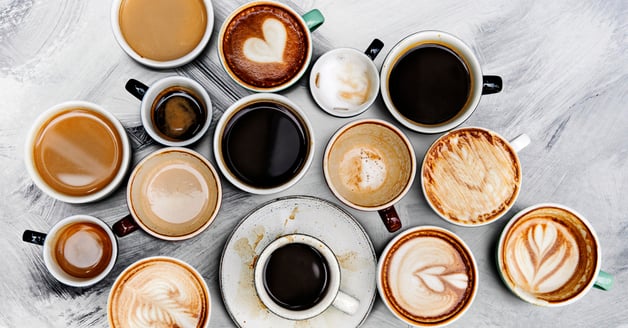
Depending on the article you read, eating breakfast might be the most important meal of the day or it might be a gluttonous tradition to be abolished this instant. For as basic as eating or drinking might seem, there is a serious lack of consensus when it comes to how to treat your body. There is no shortage of online “experts” who claim to have the recipe for the perfect diet, but most of them fade away just as fast as they appear.
We’re not here to prescribe a “get fit fast” routine, or tell you how you should or shouldn’t live, but we are here to present the facts. Certain food and caffeine habits can have an effect on your overall health, and it’s important to recognize what you’re putting in your body when.
Best time to eat
For as long as there has been food, there have been diets. From the ancient world to today, humans still can’t seem to agree over the optimal way to eat. Should you eat in the morning? Should you eat at night? Why can’t we come to a consus on this basic human need.
A number of fad diets have developed as a response to this pervasive question. Intermittent Fasting (IF), for example, is the latest diet trend that supposedly promises the new normal for calorie intake. High profile success stories such as Jimmy Kimmel’s apparent overnight weight loss have brought this fringe fad diet into the mainstream, and now everyone is trying to harness the purported power of IF.
The basic premise of IF is simple: restrict eating to certain “feasting” and “fasting” periods. This can take on several forms. There is the 5:2 method which means eat normally during the week and then restrict weekend intake to around 500 calories per day. Or the popular 16:8 method which means fasting for 16 hours and eating within an 8 hour window (this is really just the trendy equivalent of skipping breakfast).
Diets such as this work for some, but they’re not realistic for most. In reality, there is no big secret when it comes to diet. Here’s the truth: the best time to eat is when you’re hungry. It’s that simple. It’s best to consume around the same amount of calories as you burn in a day, and, as a bonus, try to eat fruits and vegetables when you can and avoid processed foods. Other than that, there is no big secret to diet — no matter how much society tries to tell you otherwise.
Best time to drink caffeine
As with food, there are plenty of opinions about when you should and should not drink caffeine. Drink caffeine in the morning, don’t drink caffeine in the morning, don’t drink it at all — of course, everyone has an opinion.
What we do know for sure about caffeine is that it is a central nervous system stimulant. It is the most widely-used psychoactive drug in the world due to its primary function: it makes you feel more awake. By blocking the action of adenosine on its receptor, caffeine reduces the flow of neurotransmitters that make you feel drowsy and promotes the ones that make you feel alert.
Science aside, caffeine is popular because it is so effective. Maybe a little too effective. Too much caffeine can negatively impact mood, sleep, dental hygiene, and more. This is why it’s important to moderate intake.
There are no hard-and-fast rules about when to drink caffeine, but there are optimal windows depending on your body chemistry. According to one neuroscientist from Dartmouth, it’s best to drink caffeine when levels of cortisol — the “stress” hormone — are low. By balancing caffeine with cortisol, you can find the perfect time in which you gain an energy boost without feeling too wired. For most, this means getting a cup of joe near the beginning of your day and during the post-lunch slump.
How to make health a priority
As with any diet regimen, the greatest sign of success will always be how you feel. Whether you’re aware of it or not, you can tell what is working and what’s not just by listening to your body.
The good news is you don’t have to do it alone. Questions about your diet, caffeine intake, and overall well being should be answered by medical professionals. That’s what they are there for. Doctor visits aren’t just for emergencies — the CDC recommends a regular health check up each year and the American Dental Association recommends at least two dental checkups a year.
If the cost of medical services is preventing you from getting the care you need, it might be time for a change. Medical discount programs offer 20 - 50 percent discounts on necessities such as dental care, vision, and prescriptions. While it’s true that only about half of Americans contact their primary care physicians a year, medical discount programs mean you can live a healthy lifestyle that doesn’t cost a premium price.

